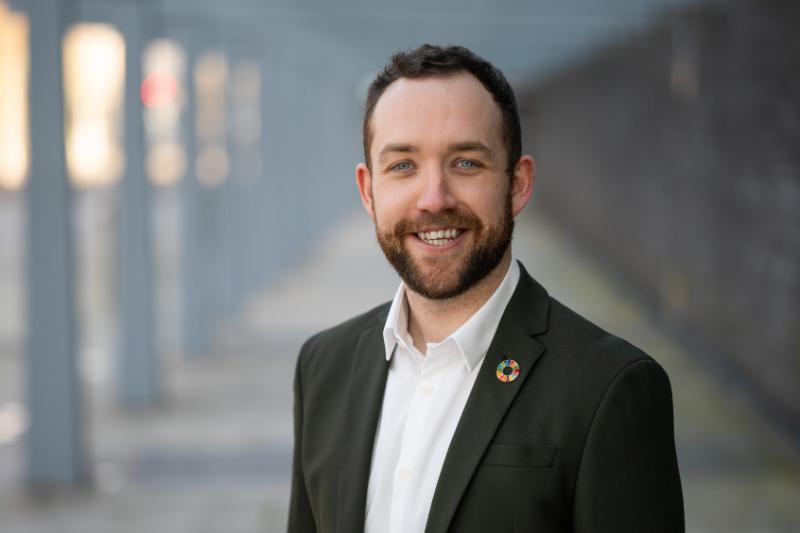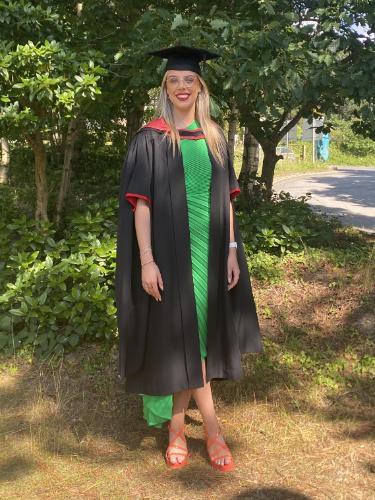Alumni
Baroness Kay Andrews, Former Deputy Speaker of the House of Lords
Deciding to go to Aber to take a degree in International Politics in 1961 confounded most people I knew, including my Headteacher and my parents. I had seemed destined to read English somewhere else. But in fact it was a stroke of genius on my part, inspired by chance - a lecture given at Coleg Harlech by Professor Philip Reynolds on the nation state: ‘No Man is an Island’. And that was that.
We were incredibly lucky to be at Aber at that time: EH Carr was still a powerful influence - and as now, the department was a byword for pioneering research and teaching in International Politics. Looking back, I realise it was a remarkable time to be studying this subject: only 25 years from the end of WW2; the brave new world of the Common Market; the maturing of the United Nations; the loss of Empire – the disgrace of Suez, the tragedy of Hungary, and the menace of the Cold War. We learned, I suspect, alongside our brilliant young teachers - Roger Morgan (still writing brilliant reviews), Ieuan John, Roy Jones – to name but three - about the reconfiguration of global power and politics, the challenges to International Law and the interpretation of contemporary history and its influence. This was first hand research and knowledge.
Moreover, it wasn’t just theoretical. We were passionate about the major international events of the time, particularly the Cuban Missile Crisis, when the world stood on the brink of nuclear war. One very wet afternoon towards the end of the crisis, we left the rather scruffy house next to the Old College where the Department was then housed, and trooped up to Penrhyndeudraeth to thank Bertrand Russell (born there in 1872!) for his dramatic intervention calling for the withdrawal of Soviet missiles from Cuba.
My career has been influenced by my conviction that evidence and logic as well as ethics and values must inform political and public life. I have been enormously privileged all my life in the education I had, and by what I have had the chance to do, both inside and outside Parliament and Government. The excitement I felt at the ideas I was exposed to as an undergraduate at Aber has never left me – and neither has the profound gratitude I still feel to those who taught me to understand more about the world and our power and responsibility to influence it.
Megan Depper - International Politics and Intelligence graduate (2019), Senior Intelligence Analyst and Line Manager
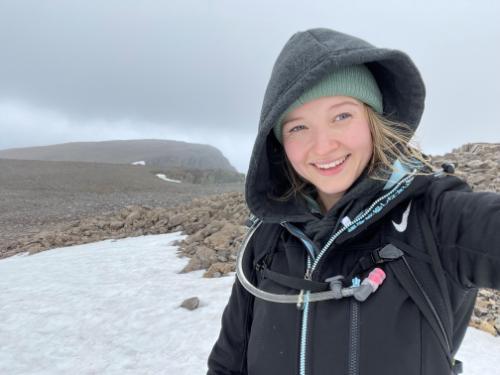
Why did you choose to study at Aberystwyth University?
After attending an open day in the summer I fell in love with the area, and loved the International Politics department. I had visited other politics departments around the UK, but the courses available and the history at Aberystwyth was unmatched. I received an unconditional offer from the merit award after partaking in the scholarship exams, and felt it was the only choice for me.
What were the highlights of your undergraduate degree?
The huge personalisation of my degree and being able to craft the courses/modules that I took around my interests. I managed to really focus a lot on the ‘intelligence’ sector of my degree and was able to complete a dissertation in a topic I was really interested in!
What did you do after completing your degree at Aberystwyth University?
I had my sights set on a job at NetWatch, my current company, and worked briefly as a Traffic Data Journalist to gain work experience. I ended up loving this role, and it provided me with the perfect set of skills to move forwards, with both real-world job experience and a degree.
What do you enjoy about your current role?
I currently work in open-source investigations and love the feeling of ‘researching’ a case and finding that key bit of information that may have been missing before.
How did your course set you up for your career path?
I focused a lot in the later stages of my degree on where I wanted to take my degree, and I definitely felt supported by the department and staff, who were always open for discussions around further careers. Being able to learn about intelligence academically gave me a passion for the sector, which I was able to take forwards.
What advice would you give to future students?
Take all the advice and support that is available from the department and get as ‘stuck in’ in with your studies and the activities at university. My three years at Aberystwyth are some of my favourite and being a part of so many clubs and societies, as well as engaging with my modules was a huge factor in this.
Alexandra El Dbeissy - MA International Relations graduate (2019), Consular Affairs Attaché at the Consulate General of Panama in Dubai, United Arab Emirates (UAE).
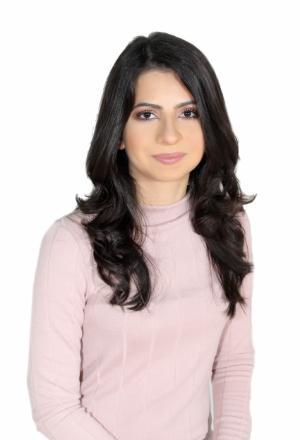
What you do now?
After concluding my Master’s degree, I began working as a Consular Affairs Attaché at the Consulate General of Panama in Dubai, United Arab Emirates (UAE). My role involves diplomatic and consular affairs. For instance, I have been involved in bilateral agreements between Panama and the United Arab Emirates, and I have also acted as a point of contact between the Consulate and the Ministry of Foreign Affairs and International Cooperation of the UAE. I am as well heavily involved in drafting official notes addressed to governmental organizations and diplomats. In addition to all of the above, my role also includes preparing reports on contemporary international affairs and assisting Panamanian citizens with different consular inquiries and requirements.
This experience is thrilling and rewarding, as it has allowed me to work and interact with high-level officials and gain a broader perspective about the issues that revolve around diplomacy. It is eye-opening and to say that I have learned a lot would be too small an expression.
The best things about the University were...
Throughout my time at Aberystwyth University, I particularly liked how important it is for the University to provide students with not just a great education, but also with a well-rounded experience that spoke volumes about the University’s dedication to the mental and physical health of their students. I also completely loved the diverse sports clubs and group exercises available at University. I joined the Tennis Club and my favorite fitness classes were Zumba and Step & Tone. Furthermore, having Hugh Owen library available 24/7 was a true gift. I managed to get all my work and studies done there and because it was always open, I never had to stress about it.
Your favourite thing about living in Aberystwyth?
One of my favorite things about living in Aberystwyth was how close to the beach we were. I would go with my friends and just sit by the beach and watch these spectacular sunsets. One of my other favorite things about Aberystwyth is all the cozy, charming shops in town. I have always adored the look and feel of the town and how sometimes a simple grocery run felt a little bit magical. Finally, and more importantly, I like how safe and friendly Aberystwyth is. It is a great place to live and a great place to visit.
How has your degree helped/will help your career?
My Master’s degree has helped me develop a more analytical mindset when it comes to evaluating international affairs from a political, cultural, and social angle. I have become more enabled in my capacity to acquire knowledge on the key policies that different countries implement to boost their economies and position as State actors in the international system. Additionally, my degree helped me enhance my communication skills, allowing me to communicate effectively in my current job.
What advice you would give to other Venezuelan students wanting to study in the UK?
My advice would be to start preparing early for your university application. Looking ahead of time into the university’s program and finding what interests you, as well as understanding the admission requirements, deadlines, tuition fees, accommodations options, university facilities, and funding opportunities can give you a great advantage. Research and early preparation are essential steps as you find your way to university. I would also highly recommend looking for online courses that can help you prepare well for any entrance exams; there are many suitable courses and practical tests available online for the IELTS exam, for example.
My other advice would be to dive into your experience with your whole heart. There is so much to learn and so much to see, so be present. Take it all in, so you can carry that with you everywhere you go.
Jacob Ellis - Welsh and International Politics graduate (2014), Director: External Relations and Culture, Future Generations Commissioner for Wales
Studying at Aberystwyth's Department of International Politics was a great experience for me. I was drawn to the department because of its reputation as one of the best in the world in international politics, but also because of the opportunity to study through the medium of Welsh. The combination of a strong academic foundation and the values embedded in Aber's culture—community, unity, and social justice—has informed my career choices and the way I approach my work today.
My time at Aberystwyth gave me a solid foundation in devolution, public affairs, policy advocacy, strategy, diplomacy, and communication—skills that have been central to every role I've undertaken. After starting my career as a journalist with BBC News, I went on to work in policy, advocacy and international engagement.
I now serve as Director of External Relations and Culture at the Office for the Future Generations Commissioner for Wales, leading on partnerships with the United Nations, cultural policy, and political advocacy.
The international perspective I developed at Aber, combined with my commitment to the Welsh language and Welsh culture, has enabled me to work across national and international organisations. As a Next Generation Fellow of the United Nations Future Generations Organization, and a UNICEF Youth Foresight Fellow, I have advised senior UN officials, diplomats, and member states, contributing most recently to the successful adoption of the UN Declaration on Future Generations. I also co-lead a multi-stakeholder global coalition for future generations, campaigning for long-term thinking in decision making. Closer to home, I have worked in leadership roles across Welsh cultural organisations, including Theatr Genedlaethol Cymru, Literature Wales, and Scouts Cymru.
Throughout all of this, Aberystwyth's influence has stayed with me — not only in terms of the academic foundation it provided, but in the values it instilled: a people-centred approach, a deep appreciation of culture and language, and a belief in the power of community. I continue to be incredibly grateful for my time there.
Fflur Arwel - Welsh and International Politics graduate (2014), MA Welsh Politics and Society (2015), Head of Communications, Plaid Cymru
Choosing the Department of International Politics at Aberystwyth University was a no-brainer. I had a keen interest in politics since my early teens, from global politics to our politics here in Wales. I never considered studying politics as a degree until I was encouraged to look into the Department of International Politics at Aberystwyth University – and that was it. The department has a reputation for being among one of the best in the world, and it's no surprise when you look at the standard of teaching, the academics, and the resources available - not to mention the iconic building! There was also so much choice in terms of the modules available to study – Welsh politics, Latin America, the Middle East, modern warfare, philosophy, gender studies, and a wide range of these were also available through the medium of Welsh thanks to the Coleg Cymraeg Cenedlaethol. I'm so glad I chose the department. I wouldn't be where I am now if I hadn't made that choice.
My experience of studying in the department was so positive. To begin with, there was so much choice in terms of the modules available to study and enough freedom for me to follow my own path and tailor the course and degree to my interests. The fact that so many modules are also available in Welsh, and that the department makes an effort to ensure Welsh provision, was also positive. There are so many extracurricular experiences available through the department, including trips, exchange programs, and crisis games. I always enjoyed attending the lectures (and I always attended too... even if I felt a bit delicate some mornings...) but the seminars were undoubtedly the best. The tutors in the department are so friendly, so supportive, and so eager to give students a voice to develop their own analyses and academic independence. We also formed, quite naturally, a community of Welsh students studying in the department and established the Aberystwyth Welsh Politics Society. I attended for the politics but left with special friends.
I said I wouldn't be where I am now without the department and this is so true. The experiences and opportunities I had by studying in the department led directly to my first job as Head of Marketing with Y Lolfa press in Tal-y-bont.
The course and department gave me access to contacts across Welsh public life, and gave me the opportunity to build relationships in the political world, which then led to a position as Senior Communications Officer in the Plaid Cymru group in the Senedd. It developed my analytical skills, a skill that is now absolutely necessary in my current job as Head of Communications for Plaid Cymru, one of the largest political parties in Wales, and preparing for the 2026 election. It's a challenging but extremely rewarding job. I would not have been able to pursue such a vibrant career path without my time and experiences in the department of international politics at Aberystwyth University.
Joseph Garibaldi - International Politics and Intelligence Studies Graduate (2021), Senior Marketing Executive
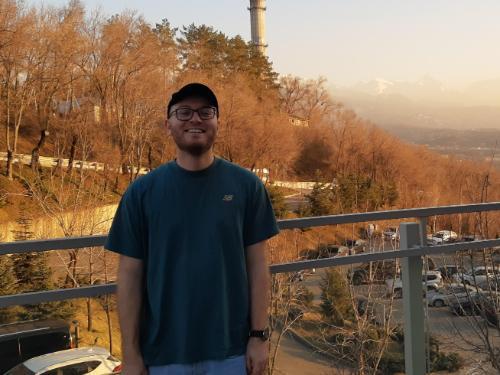
Why did you choose to study at Aberystwyth University?
I chose Aberystwyth for two main reasons. The first was the flexibility and expertise behind the course. All of the modules sounded so interesting and were taught by experts in the field. There was so much choice I didn't know which ones I wanted to pick! The second was the beautiful setting of Aberystwyth itself, nestled between the Cambrian Mountains and the sea. It's stunning all year round.
What were the highlights of your undergraduate degree?
I personally loved the seminars. It was really stimulating to talk with experts in international politics, and to have an open and safe forum to discuss ideas. It was great to get book recommendations or extra insights off members of staff. One thing I felt Aberystwyth did extremely well, is that even the most senior members of staff took seminars, and were always approachable, even at undergraduate level.
What did you do after completing your degree at Aberystwyth University?
I loved Aberystwyth so much I stayed another year and worked locally! Then the time came to move on, and now I work abroad in marketing.
What do you enjoy about your current role?
The chance to experience different cultures and languages. I think everyone should try to move abroad if they are able to, there is such a large world out there to explore.
How did your course set you up for your career path?
My course gave me a lot of traditional skills, in terms of my writing and researching ability. But the most important thing I learned at Aber is the soft skills that come from meeting new people, and the confidence it gave me to go out into the world of business and engage with others with different ideas and backgrounds from myself.
What advice would you give to future students?
Look beyond the main University cities everyone in the UK has heard of. Consider the environment you want to live in, the ideal course you want to study. Be willing to take a leap of faith. I didn't regret doing it!
Jessica Gerken - International Politics & Strategic Studies graduate (2013), Programme Manager, Global Initiative against Transnational Organized Crime
Why did you choose to study at Aberystwyth University?
Aberystwyth University was my first choice due to its historic legacy in InterPol as well as the teaching excellence and student satisfaction. The photos of sunsets by the sea were the cherry on the top.
What were the highlights of your undergraduate degree?
The student community as well as the extremely close and friendly support from teaching staff despite ‘just’ being an undergraduate.
What did you do after completing your degree at Aberystwyth University?
I immediately continued with a Master’s degree course at the Institut de hautes études internationales et du développement (IHEID) in Geneva, Switzerland. Between my Bachelor and Master’s I did an internship.
What do you enjoy about your current role?
As Programme Manager I support and oversee five projects for different state governments and supranational organisations. I have a lot of team and project management responsibilities whilst also needing expertise in my area of research (irregular migration in the Central Mediterranean off Libya). It feels like every year is different as the migration flow and human smuggling networks constantly change whilst we also get new projects or internal procedures.
How did your course set you up for your career path?
Aberystwyth, most of all, taught me to think independently and to keep a critical mind, always asking ‘how come’ questions that are critical to any kind of analytic job. I started mostly in a researcher and analyst position before moving more into management - nonetheless pure management would never work in this area as specific expertise and a deeper understanding of issues and contexts is always crucial.
What advice would you give to future students?
Don't be afraid to try new things before you find ‘your’ path. Mostly that may happen by pure chance - like me landing in the fight against transnational organised crime. There are so many different jobs out there that I still don't know of and may take up one day. Enjoy your time in Aber and make the most out of all the support and extras (like Crisis Games) you are offered.
Rebecca Grinstead - International Relations Graduate (2021), MA International Relations (2022), Communications Officer at Carmarthenshire County Council
Why did you choose to study at Aberystwyth University?
First and foremost I fell in love with the picturesque surrounds of the University and the day-to-day life it could offer. Secondly the expert teaching staff in the department that offered courses that appealed to me.
What were the highlights of your undergraduate degree?
Firstly, graduating but that’s obvious. I would say other highlights included being part of Aberystwyth Netball Club. The best feeling was seeing my dissertation printed - what a feeling!
What did you do after completing your degree at Aberystwyth University?
I went on to completing a Master’s degree in International Relations. I then moved to Carmarthenshire from South Yorkshire and started as a Communications Officer with Carmarthenshire County Council.
What do you enjoy about your current role?
I get to work on some really interesting projects, and work alongside experts in the field, as well as politicians which I particularly enjoy!
How did your course set you up for your career path?
The course I studied enabled personal growth in confidence and public speaking. But I use my knowledge of the political environment every day in my job, the degree is highly valuable in that sense.
What advice would you give to future students?
My advice would be, no matter how long it takes you to take your next steps in your chosen career, and no matter how deflated you might feel having left uni, ultimately you will end up where you need to be. Trust the process!
Steffen Rhys Hansen - BA Human Geography with International Politics graduate (2017), Programme Manager for Edelman in Brussels
Why did you choose to study at Aberystwyth University?
I was attracted by the department’s international recognition and the fact that Aberystwyth has a strong Welsh speaking community. Being a Welsh speaker and having been brought up in Brussels, I saw Aberystwyth as a great opportunity to use my Welsh while simultaneously being part of an internationally acclaimed IR department.
How has your career developed since graduating from Aberystwyth?
After completing my BA, I went on to do a master’s in Global Development at The University of Copenhagen. I wrote my master's thesis on the Green Climate Fund (GCF), analysing both the challenges and opportunities for the Fund when it comes to funding the most vulnerable countries to climate change, while also putting to light the complexities associated with defining climate vulnerability.
In summer 2019, I joined the Welsh Government’s EU Office in Brussels as an administrative intern. The role of the Welsh Government’s EU Office in Brussels is to represent Wales at the EU level. In this role, I supported the organisation of diplomatic events promoting Welsh culture, while also gaining insight into Wales’ participation in key European networks, such as the Vanguard Initiative
In 2020, I moved to the private sector, joining Landmark Public Affairs, an EU affairs consultancy working with international blue-chip companies. At Landmark, I developed an advanced understanding of EU climate, energy, transport, and circular economy policy, rising to the role of Senior Account Executive in April 2023. In May 2023, Landmark was acquired by Edelman. I am currently a Programme Manager at Edelman (in Brussels). In this role, I provide Edelman clients with strategic advice on EU policy, with a strong focus on EU climate, energy, transport, and circular economy policy. This involves drafting tailored briefings on EU policy developments and their impact on Edelman clients, actively engaging with EU policymakers (such as MEPs and Commission officials) on the client’s behalf, and representing certain clients in Brussels-based trade associations, among other responsibilities.
How did your course set you up for your career path?
My BA from Aberystwyth helped me tremendously on this journey. I completed a module on EU Politics in the InterPol Department, which helped me gain a robust understanding of the EU legislative process. At the same time, my studies in the Geography Department focused on climate change and environmental issues, providing me with a solid base to develop expertise in EU climate and energy policy.
Advice for students looking to take a similar career path?
It is important to take full advantage of career services and other opportunities available to you. Volunteering during my master’s degree helped me build my CV while still studying. Languages are a valuable asset for a career in EU affairs in Brussels. Learning a new language can be daunting, but it is likely to pay off in the long run if you plan to work internationally. Learning either French or German will be especially useful for any work related to the EU.
The European Commission’s Blue Book traineeship is an excellent stepping-stone for launching a career in EU affairs, as is the European Parliament’s Schuman Traineeship (though you must be an EU citizen to apply for these). The UK Mission to the EU (UKMis Brussels) frequently offers internship opportunities for graduates, as do many Brussels-based NGOs, such as the European Environmental Bureau (EEB), WWF Brussels, BirdLife, Fern, Transport & Environment (T&E), and the European Climate Foundation. Brussels-based think tanks, such as Friends of Europe and Bruegel, also regularly offer internships requiring little experience.
For job and internship listings, useful websites include EuroBrussels and the Euractiv JobSite. More generally, a concise, one-page CV can help you stand out in a competitive job market.
Owen Hathaway - International Politics and Strategic Studies Graduate (2004), Assistant Director: Insight, Policy and Public Affairs, Sport Wales
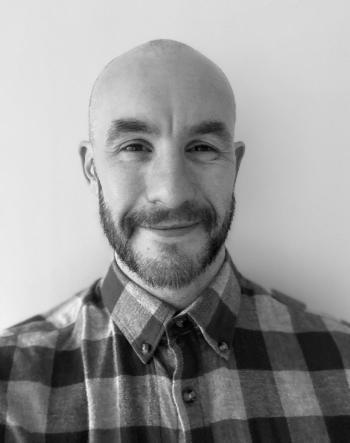
The reputation of Aberystwyth’s international politics department was, and remains, one that carries weight internationally. I was incredibly keen to be given the chance to study under such high-quality lecturers who were leading thinkers in their fields. Beyond this, the university and town itself really spoke to me. Whilst the department had so many qualities that enticed me to want to study there, the entire experience of Aberystwyth felt special, and I wanted to be part of that.
I loved my time at Aberystwyth and being part of the international politics department. My only regret is that I look back now and think I didn’t make enough of the opportunities, and didn’t engage even more! Yet I still left with a sense of achievement, a changed world view and the practical skills that would set me up for my future career. I forged friendships that lasted a lifetime, and challenging perspectives that tested who I am and would become. It helped me set up networks that I still engage with today, across politics and policy throughout Wales. It also reaffirmed my love of the Welsh language and how that element became embedded in my daily life. Yes, I gained a degree, but in truth more than that, I found out who I am and who I wanted to be.
I left Aberystwyth with a sense of wanting to use my degree and found my way into Welsh politics. I spent 7 years working in politics, including supporting the Welsh Government in a coalition period. However, over time I have discovered and decided that the critical thinking skills that Aberystwyth gave me were better placed in relationship building across political divides. I have spent time in the education sector and today am the Assistant Director for Insight, Policy and Public Affairs at Sport Wales. I love where my career has taken me, utilising the policy development and problem solving strategies that I learnt with my degree, to help shape the future of how sport can contribute to a healthier and prosperous Wales
Gwyn Loader - Welsh and Politics graduate (2007), Chief Correspondent, Newyddion S4C
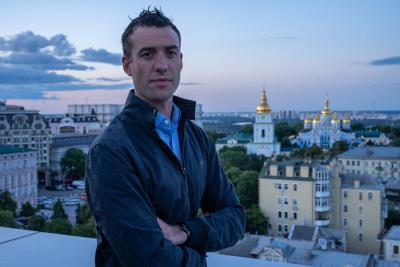
After visiting on an open day, there was no doubt in my mind that I wanted to spend three years of my life in Aber and try to gain a degree. I was attracted by the promise of a warm Welsh welcome and plenty of socialising — and my time at the College by the sea did not disappoint.
As the oldest department of its kind in the world offering education of the highest standard and the opportunity to study extensively through the medium of Welsh, I enjoyed following a variety of modules during my degree course. I have no doubt that the lectures I attended and the discussions I took part in at various seminars were an important foundation as I pursued a career in journalism.
I have been fortunate enough to report extensively on news stories and current affairs around the world - from elections in Wales, France and the United States to civil disorder in Hong Kong and Egypt and wars in Iraq, Afghanistan and Ukraine. Studying at Aberystwyth University's Department of International Politics really helped me understand and interpret complex international issues in my work with ITV Wales and the BBC in recent years.
Mateusz Mazzini - International Politics with Spanish Graduate (2013), Foreign Desk Correspondent at Gazeta Wyborcza and TV Anchor at TVP World

Why did you choose to study at Aberystwyth University?
It is never a single reason when it comes to making these kinds of choices and for me it was a combination of many different reasons. The reputation of the department came first, but the merit award and scholarships offered as financial support - a close second. Plus, an advice given by an older friend who wisely pointed out that in small university towns like Aberystwyth, the atmosphere is more conducive to study and it's a very good place to start one's intellectual journey.
What were the highlights of your undergraduate degree?
Definitely some of the courses offered by the InterPol Department, including those focused on particular areas of the world and case studies. I have very fond memories of the Contemporary Latin America module with Dr Lucy Taylor, Cuban Missile Crisis with Prof. Len Scott, and many others. But I also need to mention my year abroad in Córdoba and Basque Country, a fantastic experience.
What did you do after completing your degree at Aberystwyth University?
I went on to read for a Master's degree in Latin American Studies at St Antony's College, University of Oxford. I was sure I wanted to remain in academia after that, so I applied and got accepted for a doctoral programme at King's College in London. But lack of funding meant I had to defer for a year and come back home to Poland. KCL eventually never found a scholarship for me but in the meantime I started pitching and writing for numerous media outlets at home and abroad. My experience, networks I developed in Aberystwyth and Oxford as well as language skills gave me a competitive advantage and journalism became my new home.
What do you enjoy about your current role?
Right now, in times of great turbulence and geopolitical shifts, being a foreign correspondent gives you absolutely unique insights into the processes that will shape generations to come. I get to see and sometimes write the first draft of history - and have a head start in trying to understand what's next.
How did your course set you up for your career path?
It taught me to look at the world from different perspectives, to understand its complexities and to clearly define everything I am dealing with. Definitions are key - concepts like democracy, dictatorship, freedom can really mean a number of things to many different people.
What advice would you give to future students?
Be open to whatever life throws your way. I never anticipated being a journalist. And also - stay curious about the world and other people. Curiosity is the real opposite of doom.
Fred Mackereth - International Politics (2016), Human Relief Foundation, Programmes Officer
Why did you choose to study at Aberystwyth and what are your favourite memories of studying here?
The International Politics department at Aberystwyth is one of the best in the world, so the decision to study there was an obvious one. There is a friendly, community atmosphere which is immediately apparent from the open day. I would whole heartedly recommend studying here. I don’t think it is an understatement to say that my study at Aberystwyth laid the foundations for my career. It was during my time at Aberystwyth University that I learnt to think critically, to analyse information and sources, and to turn this into coherent and logical arguments. This is an essential skill for any work involving project design and has proved invaluable. One of my favourite things about studying in this department was the ability to go to lectures and seminars every week and to be taught and challenged by some of the best minds in the field.
How has your career developed since graduating from Aberystwyth?
I work in the humanitarian aid ‘sector’, which is notoriously difficult to enter as a graduate. After a couple of internships and unsuccessful job interviews, I secured a position as a Programmes Assistant at Human Relief Foundation. I was promoted after 6 months to Programmes Officer, and am now responsible for developing a wide range of projects across different humanitarian contexts. My role when distilled to its elements is one of problem solving. It is about analysing a situation, identifying the problem and hopefully providing a solution. Also key to my job is the ability to write and communicate with clarity and logic to a variety of different stakeholders. I get to travel frequently to interesting and unlikely places, which I think is a draw to most working in the sector. But the most satisfying part of my job is seeing the implementation and the impact of projects that I have helped to develop and secure funding for.
Advice for students looking to take a similar career path?
Don’t give up! The sector can seem impenetrable from the outside, but if you work hard and persist, you will get there eventually.
Russell Shanks - International Politics and History graduate (2014), MA Intelligence and Strategic Studies (2016), PhD Researcher, Durham University

Why did you choose to study at Aberystwyth University?
I chose Aberystwyth because the Department of International Politics is highly regarded, and the Aberystwyth is a beautiful place.
What were the highlights of your undergraduate degree?
Being taught by world-class lecturers and experts in their field. The chance to study topics that were never taught in school or college – (Studying the Vietnam War through film was especially memorable!)
What did you do after completing your degree at Aberystwyth University?
After graduating I had a career in Museums and Heritage including working for English Heritage and The Royal Air Force Museum. I always wished to undertake a PhD and have been lucky to start one at Durham University in 2024.
What do you enjoy about your current role?
My PhD is looking at WW2 in Videogames, so I am enjoying being able to utilise and refresh skills in critical thinking and academic writing learnt from my time at Aber. It has also been great to revisit a number of themes and topics of research from my undergrad and MA for this PhD.
How did your course set you up for your career path?
Doing a joint-honours degree gave me an appreciation for understanding different perspectives, skills and approaches to understanding topics. This has translated in a working environment to being able to appreciate and work alongside various departments different to my own. By seeking to understand their perspectives, challenges and goals, I have been able to achieve effective collaborations on projects.
What advice would you give to future students?
Aberystwyth is a beautiful place to come to university. Join clubs and societies and take some time to explore west Wales. Having a good life and study balance is very important to enjoying your degree.
Joscha Sisnowski - International Politics and Global Development graduate (2020), Advisor at GIZ, the main German development agency
Why did you choose to study at Aberystwyth University?
I chose Aberystwyth University for the reputation of its International Politics Department and the programmmes on offer, which aligned with my personal interests and professional goals. The beautiful location certainly also helped.
What were the highlights of your undergraduate degree?
The highlights of my undergraduate degree were the safe yet challenging learning environment, the consistently responsible teaching staff, and the exciting exchange opportunities.
What did you do after completing your degree at Aberystwyth University?
After completing my degree at Aberystwyth University, I pursued a graduate degree in the Netherlands, completed internships in both the private and public sectors, and began my career as an Advisor within development cooperation.
What do you enjoy about your current role?
II enjoy my current role because it is politically relevant and each day brings new challenges, allowing me to work in diverse local contexts while applying my prior studies in "full-circle moments.
How did your course set you up for your career path?
My course provided a strong theoretical foundation and the teaching styles were a great preparation to various professional challenges. Discussing in a multitude of opinions and cultural backgrounds was a great preparation for the work in internal organisations.
What advice would you give to future students?
I would advise future students to make the best of the tight community in Aberystwyth and be proactive in networking, I was always surprised how many Aberystwyth alumni I found along my professional path so far.
Siân Stephen - International Politics graduate (2002), MA Security Studies (2005), External Relations Manager (Wales), Disasters Emergency Committee
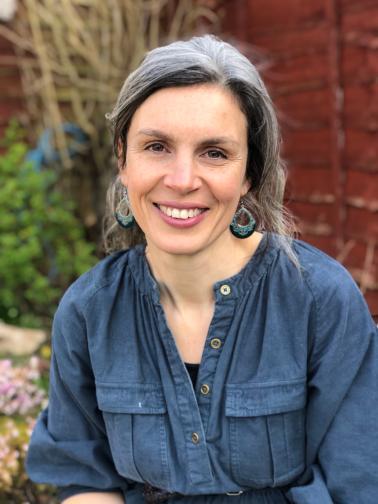
I chose the Department of International Politics at Aberystwyth because of its good reputation. Knowing that I would be able to do modules and seminars through the medium of Welsh was also an important factor... not to mention being able to live in a town as beautiful as Aberystwyth.
The experience I had in the department was great. There was such a wide range of modules available - the biggest challenge each September was choosing which ones to take - I wanted to study everything! I also enjoyed the seminars – the English-medium ones because there was an opportunity to mix with a wide range of people from different backgrounds, and the Welsh-medium ones because we were in smaller groups, having intense discussions and challenging us. The best of both worlds, I’d say.
As for my career.. it’s been a path of twists and turns so far, if I'm honest! I followed my interests and chose whatever (and wherever) felt important to me at the time. Thanks to the department I had brilliant opportunities to begin with – work experience over one summer with a Member of Parliament at Westminster, and a year at the European Parliament as a "stagiaire" to Eluned Morgan who was an MEP. The experience in a multilingual institution inspired me to learn Spanish, and a two-month language course in Guatemala turned into 8 years in Latin America before returning to Wales.
Working in smaller organisations often requires a willingness to roll up your sleeves and help out wherever it’s needed – over the years I've focused on communication, fundraising, project coordination and funding. Looking back I think I also benefited greatly from campaign work .... although that didn't cross my mind at the time! Fortunately, my current job calls for 'a little bit of everything' rather than specific expertise... and I'm thrilled to be focusing once again on international affairs – all the skills come together in the end!
Heulwen Vaughan - History and International Politics graduate (2005), MA Welsh Politics and Society (2006), Head of Constitutional Reform Policy, Welsh Government

I chose the Department of International Politics at Aberystwyth because of its outstanding reputation, not only in Wales but across the United Kingdom and beyond. Where better to study than the home of the first chair of International Politics of its kind in the world! I was very much drawn to the fact that I could study modules through the medium of Welsh and continue to live through the medium of Welsh.
I have very fond memories of studying in the department. My undergraduate course was full of interesting and varied modules with lecturers of the highest standard. There was something for everyone whether it was learning about the philosophy of Habermas and Gramsci, to learning about the history of devolution and politics in Wales! I was also extremely fortunate to be one of the first students to study a brand-new Master’s scheme in the department, Welsh Politics and Society. As part of this scheme, I had the opportunity to undertake a period of work experience at the BBC and I interviewed some of the most prominent politicians in Wales at the time for a research project.
There is no doubt, the department was a major influence on my career. After completing my Master’s course, I secured a position in the Welsh Government's education department in Cardiff. Sometime after this, I had an opportunity to combine my interest in Welsh politics and international politics through a job in the Welsh Government office in Brussels. Thereafter I moved back to Wales to work at the heart of Welsh politics in the First Minister's office. I was also fortunate to spend time on secondment in the UK Government Cabinet Office, working to organise the NATO conference with No 10’s events team, which was an unforgettable experience. Following another period working abroad for the Welsh Government (in Washington DC) I returned to work in the Welsh Government's constitutional department. The highlight of that was being able to work on the Independent Commission on the Constitutional Future of Wales - which almost felt like I had come full circle!
The skills I acquired at Aberystwyth and what I learned has been of great benefit to me throughout my career, and in fact, I continue to use them to this day, over twenty years later! Therefore, every step of my career up to this point has been shaped by my time in Aber. I am very glad that I chose the department after reading that bright yellow prospectus all those years ago.
Trayana Vladimirova - International Politics with Law graduate (2015), MA International Politics of the Internet graduate (2016), Associate QA Engineer at LucidLink, Bulgaria
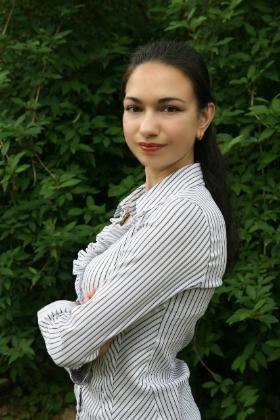
Why did you choose to study at Aberystwyth University?
I chose Aberystwyth University because of its renowned International Politics department and the flexibility to combine my major in InterPol with a variety of minor subjects. The financial support offered through the Entrance Scholarship and the Aberystwyth Bursary made this opportunity a reality.
What were the highlights of your undergraduate degree?
The six-week Parliamentary Placement with Dan Jarvis MP was the highlight of my degree, offering invaluable hands-on experience in Westminster during the WWI centenary commemorations. This opportunity, aligning perfectly with my minor in Law, allowed me to engage in diverse parliamentary tasks and even manage the office independently for a day.
What did you do after completing your degree at Aberystwyth University?
Following my undergraduate degree at Aberystwyth, I continued my studies there with a Master's in International Politics of the Internet, which led to a seven-year research career in London in Internet, Media, and Technology Law, allowing for extensive travel. I have now transitioned to manual QA engineering at LucidLink in Bulgaria, leveraging my tech passion to contribute to a product that enhances remote creative collaboration.
What do you enjoy about your current role?
I find my current role incredibly dynamic offering continuous learning opportunities and new challenges daily. I am also thrilled to be part of the company during a period of significant expansion and evolution.
How did your course set you up for your career path?
My studies at Aberystwyth fostered a belief in lifelong learning and the ability to quickly grasp new concepts, providing a strong foundation for my varied career path. Furthermore, the development of meticulous attention to detail through academic work proved invaluable in my current role, where accuracy is paramount.
What advice would you give to future students?
Make the most of Aberystwyth University's supportive environment to explore diverse career paths and find your true calling. Even if your career ultimately diverges from your studies, the transferable skills you will acquire there will empower you to succeed.

